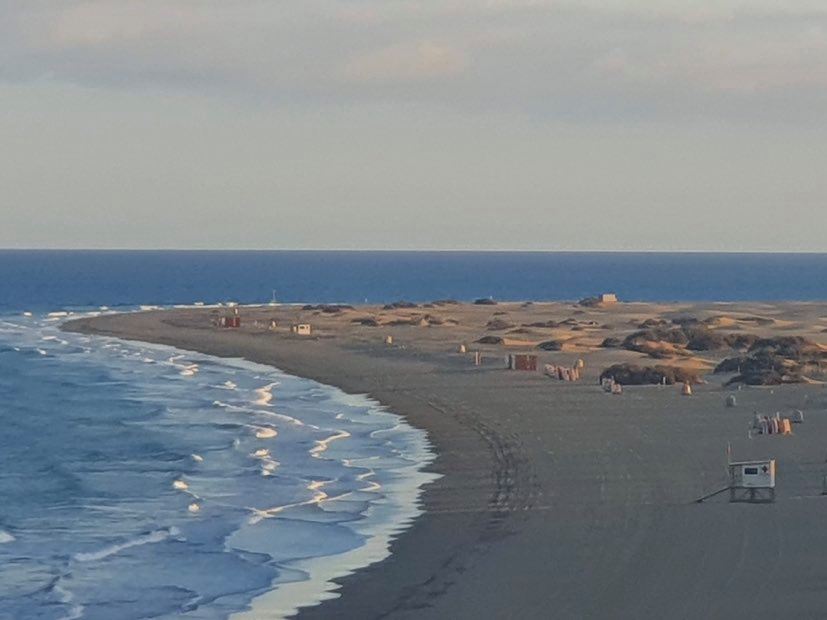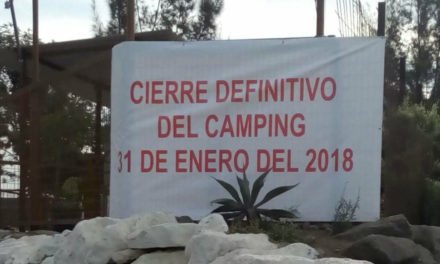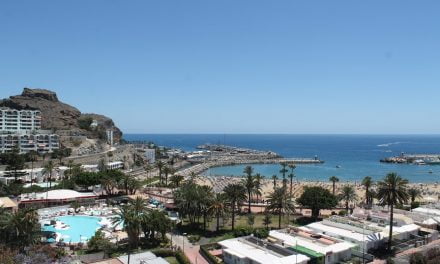On Monday, May 25, beaches on Gran Canaria, Tenerife, Fuerteventura, Lanzarote and La Palma will open once more for people to be able to sunbathe and swim recreationally, however showers, foot-baths and designated recreational areas will stay closed to avoid possible infections from Covid-19.
These remaining five will join the other Canary Islands, La Gomera, El Hierro and La Graciosa already in phase two of the Spanish state de-escalation plan, which were among the first places in Spain to advance to that stage last Monday. This will mean greater levels of freedom throughout the Canary Islands, including leisure use of beaches, although the state regulations have once again generated uncertainties.
A technical meeting of the Canary Islands Federation of Municipalities (FECAM) and the regional government was convened yesterday to establish a framework protocol for the measures to be taken by the various municipalities in allowing access to their beaches. They recognised the differences between a small cove and beaches that stretch for kilometers, with the intention of clarifying some of the issues likely to be encountered.
 At this time, the priority is security “on the ground,” said Tomás Pérez, Mayor of La Aldea and leader of the Fecam security commission, so lifeguard teams from the Red Cross will join the Local Police to control compliance with the rules of social distancing and protection measures.
At this time, the priority is security “on the ground,” said Tomás Pérez, Mayor of La Aldea and leader of the Fecam security commission, so lifeguard teams from the Red Cross will join the Local Police to control compliance with the rules of social distancing and protection measures.
All across Spain there are still many unknowns. Although Fecam is clear that, as a general rule, showers and recreation areas will be closed and that the separation between beach users will be monitored, there are still multiple issues that need to be defined.
In Andalusia, for instance, there are proposed measures to limit the capacity of people on the beaches. There they are recommending showering before going to the beach and then again upon arrival, with people being asked to not stay on the beach for more than four hours to avoid crowds. Other areas, such as Galicia, are asking people to make a prior appointment to avoid overcrowding. FECAM do not plan to go to these extremes in the Canary Islands. Pérez refered to the first day that we were allowed to exercise, in phase zero, or to go to bar and restaurant terraces, in phase one. Though there were crowds at first, the numbers have lessened, which he believes demonstrates that it is a matter of individual responsibility, which can be extrapolated to the general opening of the beaches, which can already be used for sports training. He stressed that we cannot yet relax our efforts to mitigate the effects of a virus that has claimed 155 lives on the islands and more than 27,700 in Spain.
The ministerial order for the penultimate phase two of de-escalation indicates that visits to the beaches will be allowed, always maintaining a minimum safety distance of at least two meters, or, failing that, using alternative measures of physical protection, including consistent hand hygiene and a mask, mandatory in public spaces. Groups can be a maximum of 15 people.
Shopping centres, bars, restaurants, nightclubs, cinemas, theaters, weddings and funerals
 Shopping centers will also be allowed to reopen under phase two rules, however, with quite a few limitations, as common areas and recreational areas will still be out of bounds, and capacity will be limited to 40% with a preferential service schedule established for people over 65 years of age.
Shopping centers will also be allowed to reopen under phase two rules, however, with quite a few limitations, as common areas and recreational areas will still be out of bounds, and capacity will be limited to 40% with a preferential service schedule established for people over 65 years of age.
Restaurants will be able to allow customers to enter inside, once more, although food and drink cannot be consumed at the bar and seating will be limited to one third of capacity, so that there is sufficient separation between customers. Nightclubs will not open yet.
Cultural spaces such as libraries and museums will be joined by cinemas, theaters and auditoriums, which will open to the public with previously assigned seating and limited to a third of capacity. Shows must host audiences of less than 50 people indoors and less than 400 outdoors.
In addition, from phase two, weddings can be held in all types of facilities, at up to 50% venue capacity and without exceeding 100 guests in outdoor spaces or 50 in closed spaces.
Funeral wakes will also have a limit of 25 people in open spaces or 15 in closed spaces. And among other relaxation measures in phase two of de-escalation, places of worship will now be limited to half normal capacity.










